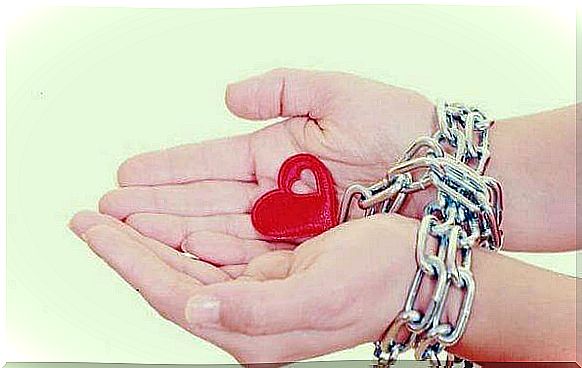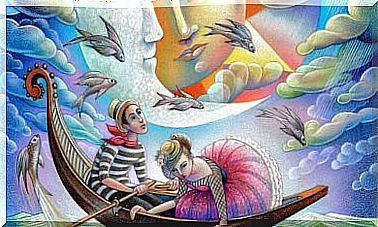7 Factors That Damage Our Relationship With Ourselves

It is hard to believe that there are factors that damage the relationship we have with ourselves. It is even harder to believe that we personally take responsibility for feeding these factors.
One would tend to assume that each person is looking for what is best for them. But the human being is paradoxical and very often he is incomprehensible. For this reason, he sometimes acts in ways opposite to his well-being.
During our adulthood, the most important relationship we can have is the one we have with ourselves. It is assumed that at this time we have attained sufficient knowledge and experience to act with free will. It is a freedom that we sometimes use, consciously or unconsciously, in making decisions that damage the relationship we have with ourselves.
No one deliberately cultivates an inner conflict. Like the majority of people, you are certainly trying to get well. If you are doing well, you are trying to get better. The problem is, there are preconscious or unconscious mechanisms that prevent you from doing this. It is therefore important to know the factors that damage the relationship you have with yourself. Here are some of them.
1. Psychological dependence
Psychological addiction is one of the factors that damages the relationship we have with ourselves. It arises from a feeling of disability, conscious or unconscious. The individual sees himself as someone in need of support and protection. He does not realize that this need is fictitious and that its only consequence is to reduce his independence.
Sometimes these kinds of feelings are the result of a restrictive upbringing. The person has never been exposed to situations that really test their abilities: their environment has overprotected them.

2. Living in the present
Not living in the present is a kind of alienation. Today is the time that condenses the past and the future. Anything that is not present exists only in our mind, whether in the form of memories or predictions.
Not being able to position yourself in the here and now damages the relationship you have with yourself – it’s a habit called inaction. Since the past and the future dwell only in our mind, we usually give up on action. Our attention remains sequestered in the mental dynamic.
3. The excessive sense of duty
In reality, we define a lot of our tasks as being obligatory whereas in the end we decide to make them essential. Often this “I must” only exists in our imaginary world. It is only an option that we have chosen and which basically does not correspond to any obligation.
This damages the relationship we have with ourselves because, by increasing the level of demand that we have, our goals will be more difficult to achieve. It will be difficult to feel, for example, that we have done a good job if we feel that we have had an obligation to do it in a certain way and that the result does not correspond.

4. The personal accusation
This point is linked to taking on responsibilities that do not correspond to us. It is also associated with patterns of behavior based on an inordinate demand on ourselves. Obviously, this is a factor that contributes to damaging the relationship we have with ourselves. Indeed, we end up being an implacable judge of our actions, our thoughts and our desires.
There are many things in life that we cannot do or be. It doesn’t make us bad, it just makes us human. There is no need to wrongly accuse us. If we make a mistake, we fix it. Then we turn the page.
5. Faith in luck
Belief in luck and overestimating its influence makes us more passive. At the same time, we are becoming more superstitious. This prompts us to use our resources to make decisions that are unrelated to the unfolding of events.
That chance plays an important role does not mean that we live by experiencing a mapped out destiny. That we can’t choose cards doesn’t mean that cards can determine the course of a game.
6. Prejudices
Prejudices are fixed ideas that allow us to work with simple realities (without nuances). They reduce our cognitive expenditure and increase our risk of error. These are often generalizations that are taken without criticism because they come from trusted people or people with strong influence. We may also have recorded them during periods when we did not have the resources to analyze them.
These preconceptions affect the relationship we have with ourselves because they reduce our perspective and prevent us from moving forward. They also feed fears which are not totally imaginary and which contribute to impoverish our social circle.
7. The obsession with the righteous
Justice is what we all want. The problem is, this is an instance or a dimension for which there are not always simple answers. What for someone is right may not be right for someone else. Not to mention the number of times we use “right” and “good” as synonyms when they are not always.
When the interest in justice turns into an obsession, it is possible to convert us into judges for matters that we do not control. On the other hand, when interests are opposed in a lawsuit, it is not always possible to give a fair verdict for all parties.
All of these factors contribute to damaging the relationship we have with ourselves. They become obstacles for the attainment of well-being. What is positive is that it is not difficult to turn the situation around and adopt a more constructive outlook.










